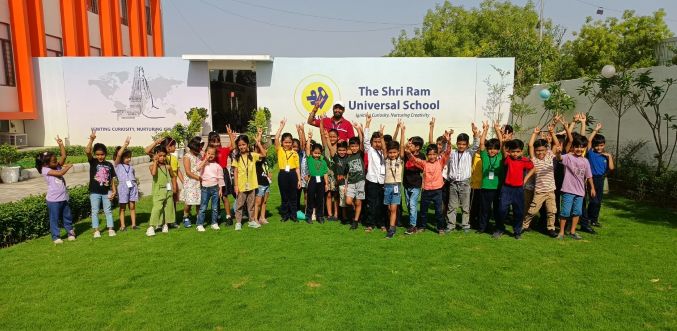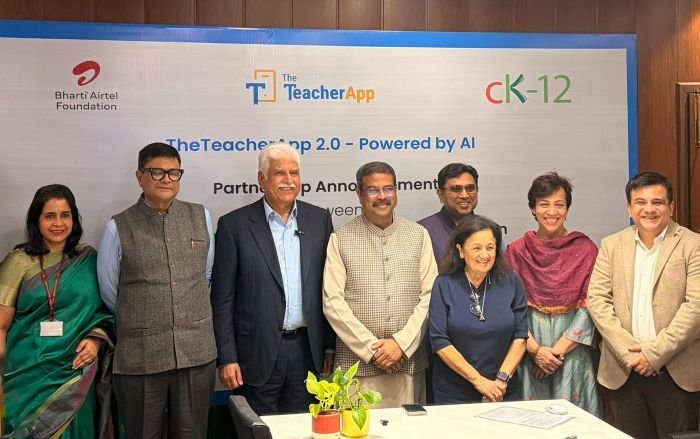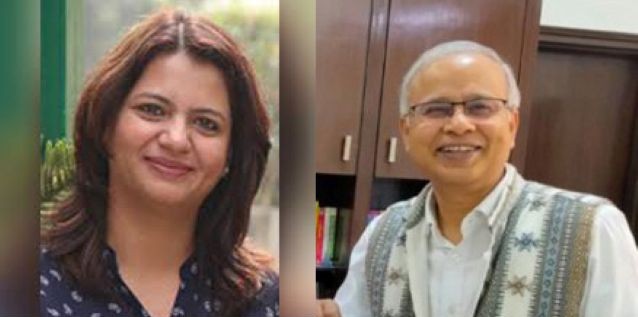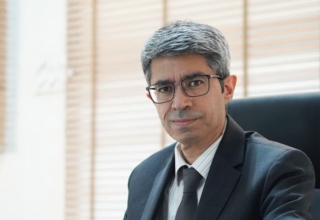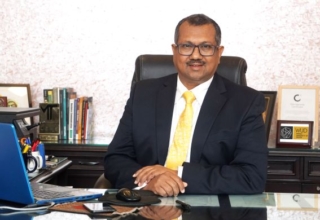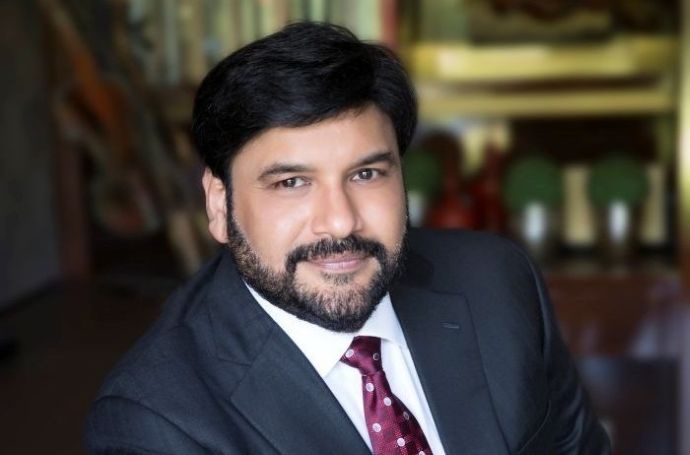
Sanjay Kothari is the Vice Chairman of the KGK Group, a global conglomerate in the gemstones and diamond jewelry business. An alumnus of HR College of Commerce and Economics, Mumbai, Sanjay Kothari represents the fourth generation of the Kothari family. The Group’s philanthropic work back in India and precisely in Jaipur under the aegis of KGK Foundation, is well known. In February 2025, the KGK Foundation announced its entry into the K–12 school education space by rebranding an existing Jaipur-based CBSE-affiliated school as The Shri Ram Universal School (TSUS). Autar Nehru spoke to Mr Sanjay Kothari on Foundation’s foray into school education this year:
Q: Mr. Kothari, you represent the fourth generation of a family that has built one of the world’s leading diamond and gemstone conglomerates. How do you view your journey within the KGK Group?
Sanjay Kothari: I joined the family business in 1986, moving to Hong Kong to oversee our international operations. Over the years, our focus has remained on upholding the legacy of excellence started by my great-grandfather, Keshrimalji Kothari, who founded the Group in 1905. While our headquarters is in Hong Kong, our heart remains in Jaipur. Today, the KGK Group has a net worth exceeding ₹12,000 crore and employs more than 18,000 people globally. Our manufacturing continues to be rooted in India, supplying high-quality gemstones and diamond jewelry to the world.
Q: Philanthropy has become a strong pillar of the KGK Group. What drives that commitment?
Giving back is deeply ingrained in our family values. The KGK Foundation, our CSR arm, channels that commitment into areas such as healthcare, education, heritage conservation, and skill development. One of our most significant contributions is the Bhagwan Mahaveer Cancer Hospital and Research Centre (BMCHRC) in Jaipur. It’s a NABH- and NABL-accredited facility that provides comprehensive cancer care to thousands. We’ve also long supported skill-based education through our KGK Academy—formerly the Diamond & Color Gemstones Training Institute in Jaipur—which has trained thousands of professionals.
Q: In 2025, the Foundation ventured into K–12 education. What sparked this shift?
We felt that Jaipur still lacks sufficient quality schools. After making a difference in healthcare, we wanted to make a similar impact in education. While the Foundation has supported educational initiatives earlier, this marks our first direct involvement in running a school. In February 2025, we rebranded an existing CBSE-affiliated school in Jaipur as The Shri Ram Universal School (TSUS), in collaboration with Shri Educare Limited, under the aegis of the Kulguru Shiksha Samiti.
Q: Why partner with Shri Educare Limited?
Because they share our long-term vision. Like us, they are not driven by profit but by a mission to elevate the quality of education. Together with the school’s original promoters, we aim to make TSUS a showpiece institution. By the end of the third year, we expect it to operate at full capacity with around 3,700 students.
Q: What makes TSUS different from other schools in Jaipur?
While the academic framework follows the established Shri Ram model, we are enhancing it with a global perspective. We’re incorporating advanced technology, international teaching practices, and a holistic development approach. Our curriculum includes entrepreneurship, wellness—such as yoga and spirituality—and personality development. The goal is to prepare students not just academically, but as balanced, future-ready individuals.
Q: The KGK Academy has been a significant part of your skill development initiatives. What’s the latest on that front?
We’re centralizing all our short-term diamond and colored gemstone training programs into Jaipur. Previously, these were spread across Jaipur, Surat, and Mumbai. From 2026, the upgraded KGK Academy will offer structured certificate courses and train 1,500–1,600 students annually. Given our industry needs, a good number of graduates find employment within the KGK Group or the broader industry. So, it’s not just education—it’s a direct path to employability.
Q: What are your future plans in education beyond TSUS?
We’re working on two new International Baccalaureate (IB) schools. The first one, already under construction, will begin admitting students in 2026 and start full operations in April 2027. A second, even larger IB school is also in the pipeline. These projects reflect our ambition to create high-quality, globally benchmarked institutions. Once they’re operational and we’ve gathered experience, we’ll replicate the model in other regions.
Q: Your philanthropic work is largely centered in Jaipur. Why the local focus?
It’s part of our “giving back to roots” philosophy. Jaipur is where our journey began, and it’s where we want to create deep, sustainable impact. By focusing on building strong, operationally sound models here first—whether in healthcare, education, or vocational training—we ensure that the impact is real and replicable. Scaling can only happen once the foundation is solid.
Q: Finally, how do you define success when it comes to your charitable efforts?
For us, success means creating institutions that endure. Institutions that don’t just serve people today but continue to uplift future generations. We don’t believe in temporary relief—we want to build permanent solutions. Whether it’s a hospital saving lives or a school nurturing minds, the goal is to create meaningful, measurable change.


